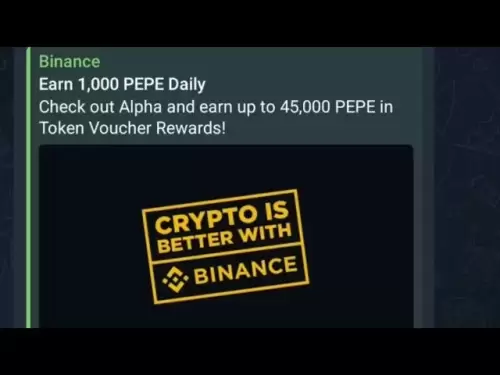-
 Bitcoin
Bitcoin $117900
0.31% -
 Ethereum
Ethereum $3766
0.28% -
 XRP
XRP $3.176
-0.31% -
 Tether USDt
Tether USDt $1.000
0.00% -
 BNB
BNB $795.6
1.51% -
 Solana
Solana $186.8
-1.09% -
 USDC
USDC $0.9999
-0.01% -
 Dogecoin
Dogecoin $0.2353
-1.33% -
 TRON
TRON $0.3226
1.49% -
 Cardano
Cardano $0.8172
-1.08% -
 Sui
Sui $4.178
3.06% -
 Hyperliquid
Hyperliquid $43.05
-3.39% -
 Stellar
Stellar $0.4367
-0.57% -
 Chainlink
Chainlink $18.62
1.47% -
 Hedera
Hedera $0.2828
6.63% -
 Bitcoin Cash
Bitcoin Cash $584.7
5.65% -
 Avalanche
Avalanche $24.81
2.53% -
 Litecoin
Litecoin $112.8
-0.88% -
 UNUS SED LEO
UNUS SED LEO $8.975
-0.08% -
 Shiba Inu
Shiba Inu $0.00001395
-1.07% -
 Toncoin
Toncoin $3.285
-1.05% -
 Ethena USDe
Ethena USDe $1.001
0.01% -
 Polkadot
Polkadot $4.123
0.76% -
 Uniswap
Uniswap $10.49
-0.18% -
 Monero
Monero $326.5
0.14% -
 Dai
Dai $0.9999
-0.02% -
 Bitget Token
Bitget Token $4.576
0.34% -
 Pepe
Pepe $0.00001247
-1.55% -
 Cronos
Cronos $0.1400
3.77% -
 Aave
Aave $295.1
-0.73%
How do I manually add tokens to MetaMask?
To add custom tokens to MetaMask, enter the token contract address, symbol, and decimals, then import the token to manage your crypto assets efficiently.
Apr 14, 2025 at 07:00 am
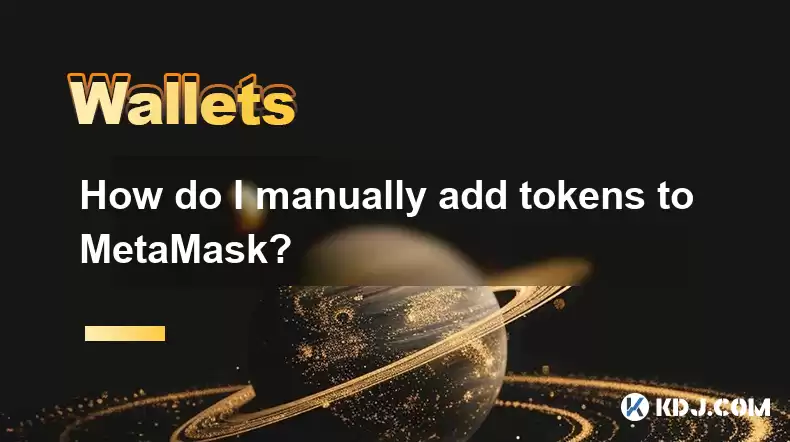
Adding tokens to your MetaMask wallet manually can be a straightforward process if you follow the right steps. This guide will walk you through the process of adding custom tokens to your MetaMask wallet, ensuring you can manage your cryptocurrency assets efficiently.
Understanding MetaMask and Custom Tokens
MetaMask is a popular cryptocurrency wallet that allows users to interact with the Ethereum blockchain and other compatible networks. While MetaMask automatically detects and adds popular tokens, you may need to add custom or less common tokens manually. Custom tokens are those that are not automatically recognized by MetaMask, and you'll need to input their details manually.
Preparing to Add a Custom Token
Before you start, ensure you have the following information about the token you want to add:
- Token Contract Address: This is a unique identifier for the token on the blockchain.
- Token Symbol: The shorthand representation of the token (e.g., ETH for Ethereum).
- Decimals of Precision: The number of decimal places the token uses (e.g., 18 for most ERC-20 tokens).
You can usually find this information on the token's official website or through a blockchain explorer like Etherscan.
Accessing MetaMask
To begin, you need to access your MetaMask wallet. Here's how:
- Open your web browser and navigate to the website where you have MetaMask installed as an extension.
- Click on the MetaMask icon in your browser's toolbar to open the wallet.
- Enter your password if prompted to unlock your wallet.
Adding a Custom Token to MetaMask
Once you're logged into your MetaMask wallet, follow these steps to add a custom token:
- Click on the "Assets" tab at the top of the MetaMask interface.
- Click on "Import tokens" at the bottom of the list of your current assets.
- Enter the Token Contract Address in the "Token Contract Address" field.
- MetaMask will automatically try to detect the Token Symbol and Decimals of Precision. If it does not, you will need to enter these manually.
- Click on "Add Custom Token" to review the token details.
- Click on "Import Tokens" to add the token to your wallet.
Verifying the Added Token
After adding the token, it's important to verify that it has been added correctly:
- Check the "Assets" tab again to see if the new token appears in your list of assets.
- Ensure the token balance is displayed correctly. If the balance is zero, it means you do not hold any of that token in your wallet.
Troubleshooting Common Issues
Sometimes, you might encounter issues when adding custom tokens. Here are some common problems and their solutions:
- Incorrect Token Contract Address: Double-check the token contract address for any typos or errors. You can verify the address on a blockchain explorer.
- Token Not Displaying: If the token does not appear after adding, try refreshing the page or restarting your browser.
- Balance Not Showing: Ensure you have the correct network selected in MetaMask. Some tokens may only be visible on specific networks.
Adding Tokens on Different Networks
MetaMask supports multiple networks, and you may need to add tokens on networks other than Ethereum. Here's how to do it:
- Switch to the desired network by clicking on the network name at the top of the MetaMask interface and selecting the appropriate network from the dropdown menu.
- Follow the same steps as outlined above to add the custom token on the new network.
Managing Your Custom Tokens
Once you've added custom tokens to your MetaMask wallet, you can manage them like any other asset:
- Send and Receive: You can send and receive the custom tokens using the "Send" and "Receive" options in the token's asset page.
- View Transaction History: You can view the transaction history of your custom tokens by clicking on the token and then selecting "View on Etherscan" or the equivalent for other networks.
Frequently Asked Questions
Q: Can I add tokens from other blockchains to MetaMask?
A: MetaMask primarily supports Ethereum and Ethereum-compatible networks like Binance Smart Chain and Polygon. You cannot add tokens from blockchains that are not supported by MetaMask.
Q: What should I do if the token I added shows a zero balance?
A: If the token shows a zero balance, it means you do not hold any of that token in your wallet. You can send the token to your MetaMask address to see a balance.
Q: Is it safe to add custom tokens to MetaMask?
A: Adding custom tokens to MetaMask is generally safe, but you should only add tokens from trusted sources. Always verify the token contract address on a blockchain explorer before adding it to your wallet.
Q: Can I remove a custom token from MetaMask?
A: Yes, you can remove a custom token from MetaMask by clicking on the token in the "Assets" tab, then clicking on the three dots next to the token name, and selecting "Hide." This will remove the token from your list of assets but will not affect your actual balance.
Disclaimer:info@kdj.com
The information provided is not trading advice. kdj.com does not assume any responsibility for any investments made based on the information provided in this article. Cryptocurrencies are highly volatile and it is highly recommended that you invest with caution after thorough research!
If you believe that the content used on this website infringes your copyright, please contact us immediately (info@kdj.com) and we will delete it promptly.
- Cryptos to Watch in 2025: Punisher Coin, Chainlink, and the Altcoin Arena
- 2025-07-27 18:30:13
- Bitcoin, Altcoins, Rebound: Navigating the Crypto Comeback Trail
- 2025-07-27 18:30:13
- Ethereum, Bitcoin, and Altcoins: A Shift in Crypto Tides?
- 2025-07-27 19:10:13
- Windtree Therapeutics' Bold BNB Strategy: A $520 Million Crypto Play
- 2025-07-27 19:10:13
- Solana, Staking, and Unilabs: What's the Buzz in the Crypto Space?
- 2025-07-27 16:50:13
- VeChain, HBAR, Remittix: Navigating the Crypto Landscape in 2025
- 2025-07-27 17:10:12
Related knowledge
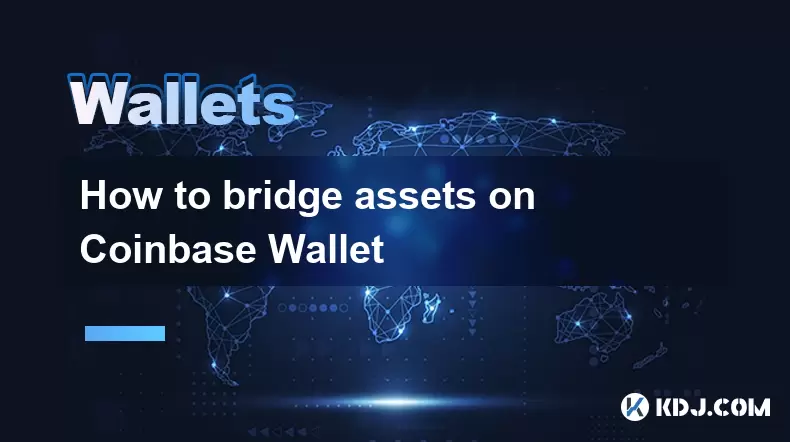
How to bridge assets on Coinbase Wallet
Jul 27,2025 at 01:14am
What Is Asset Bridging in the Context of Coinbase Wallet?Bridging assets refers to the process of transferring tokens from one blockchain network to a...
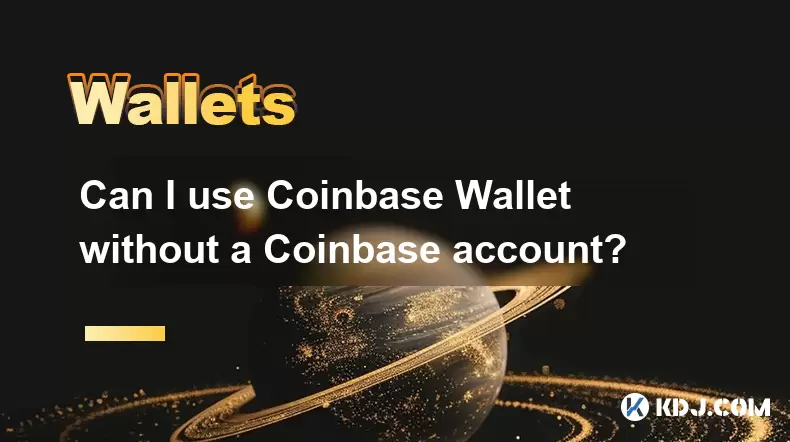
Can I use Coinbase Wallet without a Coinbase account?
Jul 18,2025 at 04:35am
What is Coinbase Wallet?Coinbase Wallet is a self-custodial wallet that allows users to store, send, and receive various cryptocurrencies directly on ...
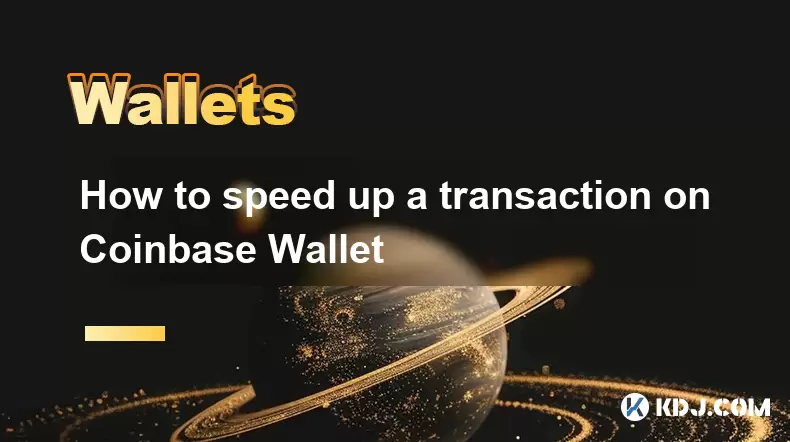
How to speed up a transaction on Coinbase Wallet
Jul 27,2025 at 07:14am
Understanding Transaction Speed on Coinbase WalletWhen using Coinbase Wallet, users may occasionally encounter delays in transaction confirmations. Th...
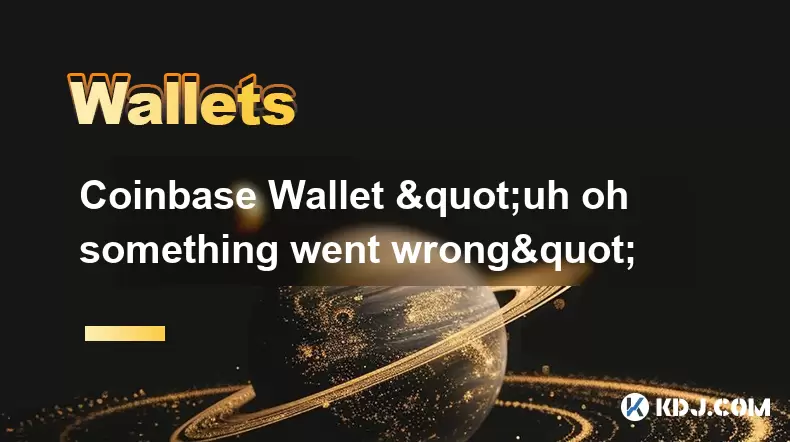
Coinbase Wallet "uh oh something went wrong"
Jul 20,2025 at 10:00am
Understanding the Coinbase Wallet Error: 'Uh Oh, Something Went Wrong'If you're a Coinbase Wallet user, encountering the error message 'Uh Oh, Somethi...
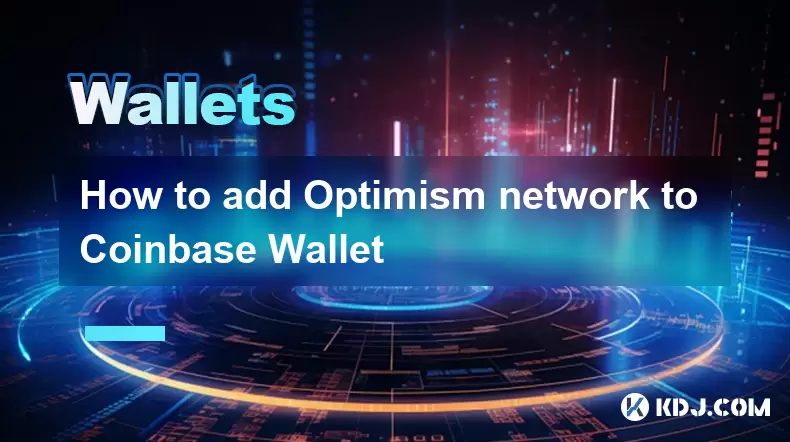
How to add Optimism network to Coinbase Wallet
Jul 20,2025 at 05:21am
What is the Optimism Network?The Optimism network is a Layer 2 scaling solution built on top of the Ethereum blockchain. It aims to enhance transactio...
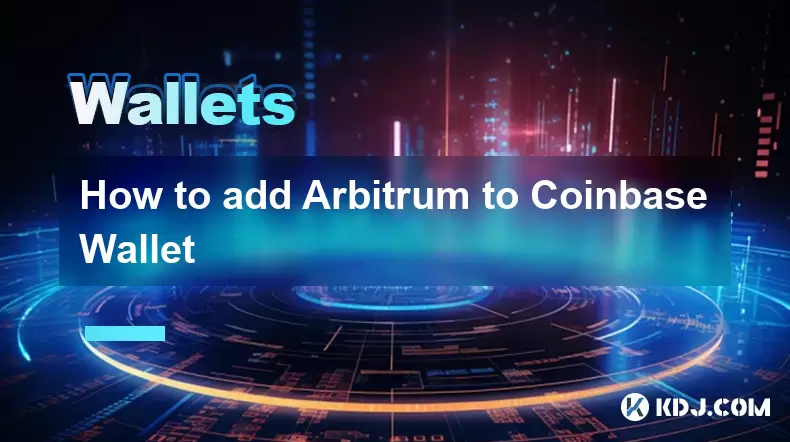
How to add Arbitrum to Coinbase Wallet
Jul 18,2025 at 03:00pm
Understanding Arbitrum and Its Integration with Coinbase WalletArbitrum is a layer-2 scaling solution developed by Offchain Labs to enhance the speed ...

How to bridge assets on Coinbase Wallet
Jul 27,2025 at 01:14am
What Is Asset Bridging in the Context of Coinbase Wallet?Bridging assets refers to the process of transferring tokens from one blockchain network to a...

Can I use Coinbase Wallet without a Coinbase account?
Jul 18,2025 at 04:35am
What is Coinbase Wallet?Coinbase Wallet is a self-custodial wallet that allows users to store, send, and receive various cryptocurrencies directly on ...

How to speed up a transaction on Coinbase Wallet
Jul 27,2025 at 07:14am
Understanding Transaction Speed on Coinbase WalletWhen using Coinbase Wallet, users may occasionally encounter delays in transaction confirmations. Th...

Coinbase Wallet "uh oh something went wrong"
Jul 20,2025 at 10:00am
Understanding the Coinbase Wallet Error: 'Uh Oh, Something Went Wrong'If you're a Coinbase Wallet user, encountering the error message 'Uh Oh, Somethi...

How to add Optimism network to Coinbase Wallet
Jul 20,2025 at 05:21am
What is the Optimism Network?The Optimism network is a Layer 2 scaling solution built on top of the Ethereum blockchain. It aims to enhance transactio...

How to add Arbitrum to Coinbase Wallet
Jul 18,2025 at 03:00pm
Understanding Arbitrum and Its Integration with Coinbase WalletArbitrum is a layer-2 scaling solution developed by Offchain Labs to enhance the speed ...
See all articles

























